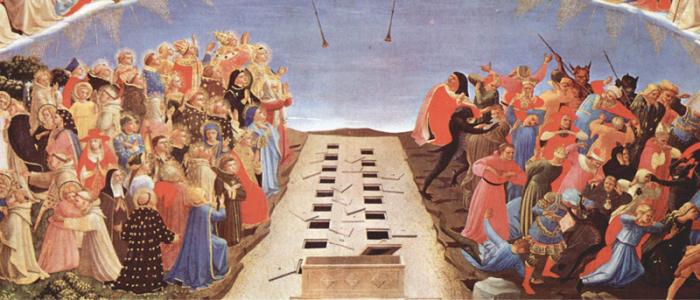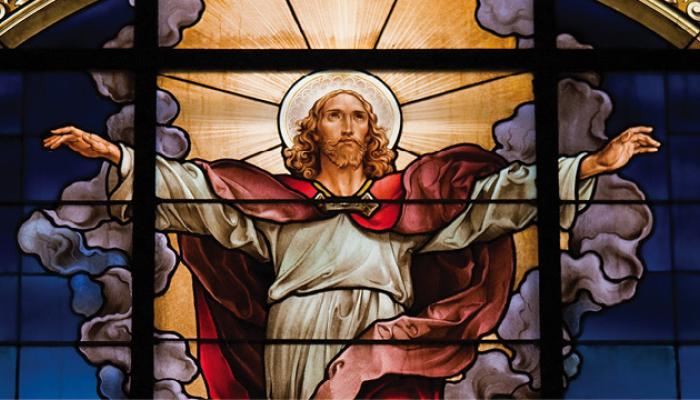
1.44 Will we be judged immediately after we die?
In our life we always have the opportunity to choose God and his love. Immediately after our death each of us will be judged based on what we did or did not do.
If we choose God during our life, then we go to heaven, possibly via purgatory. Someone who deliberately and consciously rejected God’s love during his life chooses hell. People who do their best to live as Christians and to love God and their neighbour don’t need to be afraid of judgment. God wants everyone to go to heaven.
Will we be brought to judgment after death?
The so-called particular or personal judgment occurs at the moment of death of the individual. The general judgment, which is also called the Last Judgment, occurs on the Last day, at the end of the world, when the Lord comes again.
In dying every man arrives at the moment of truth. Now it is no longer possible to repress or conceal anything; nothing more can be changed. God sees us as we are. We come before his tribunal, where he proclaims and brings about what is just. Perhaps we will still have to undergo a process of purification, or maybe we will be able to fall into God’s arms immediately. But perhaps we will be so full of wickedness, hatred, and denial of everything that we will turn our face away from love forever, away from God. A life without love, however, is nothing but hell. [Youcat 157]
What is hell?
Hell is the condition of everlasting separation from God, the absolute absence of love.
Someone who consciously and with full consent dies in serious sin, without repenting, and refuses God’s merciful, forgiving love forever, excludes himself from communion with God and the saints. Our freedom makes that decision possible. Jesus warns us again and again not to separate ourselves definitively from him by shutting our hearts against the need of his brothers and sisters: “Depart from me, you cursed …. As you did it not to one of the least of these, you did it not to me” (Mt 25:41, 45). [Youcat 161]
How can one reconcile the existence of hell with the infinite goodness of God?
God, while desiring “all to come to repentance” (2 Peter 3:9), nevertheless has created the human person to be free and responsible; and he respects our decisions. Therefore, it is the human person who freely excludes himself from communion with God if at the moment of death he persists in mortal sin and refuses the merciful love of God. [CCCC 213]
What is the Last Judgment?
The Last Judgment will take place at the end of the world, at the second coming of Christ. “All who are in the tombs will hear his voice and come forth, those who have done good, to the resurrection of life, and those who have done evil, to the resurrection of judgment” (Jn 5:29).
When Christ comes again in glory, his full splendor will shine upon us. The truth will come plainly to light: our thoughts, our deeds, our relationship to God and to other men—nothing will remain hidden. We will recognize the ultimate meaning of creation, comprehend God’s marvelous ways for the sake of our salvation, and finally receive also an answer to the question of why evil can be so powerful if God is in fact the Almighty. The last Judgment is also our day in court. Here it is decided whether we will rise to eternal life or be separated from God forever. Toward those who have chosen life, God will act creatively once again. In a “new body” (see 2 Cor 5) they will live forever in God’s glory and praise him with body and soul. [Youcat 163]
When will this judgment occur?
This judgment will come at the end of the world and only God knows the day and the hour. [CCCC 215]
All souls have, when they quit this world, their different receptions. The good have joy; the evil torments. But when the resurrection takes place, both the joy of the good will be fuller, and the torments of the wicked heavier, when they shall be tormented in the body... For the rest, which is given immediately after death, every one, if worthy of it, receives when he dies. [St. Augustine, On the Gospel of St. John 49:10 (ML 35, 1751)]





